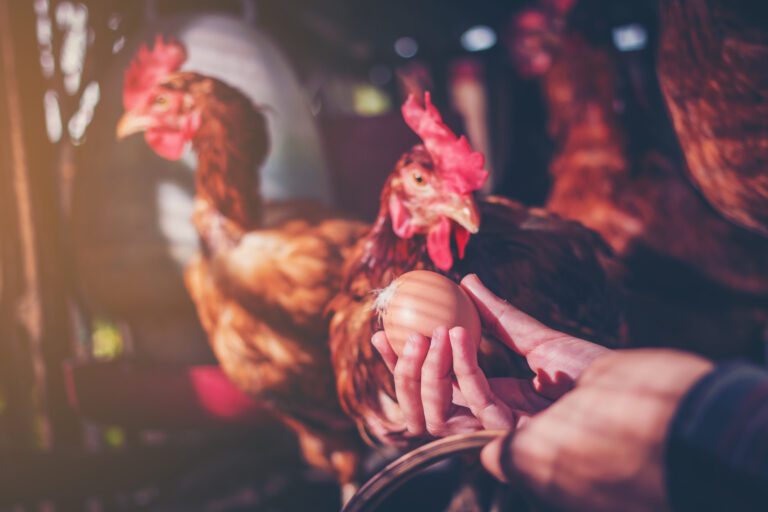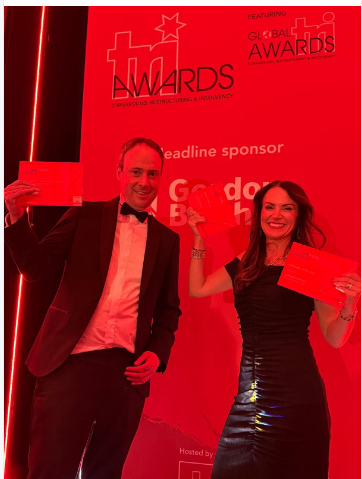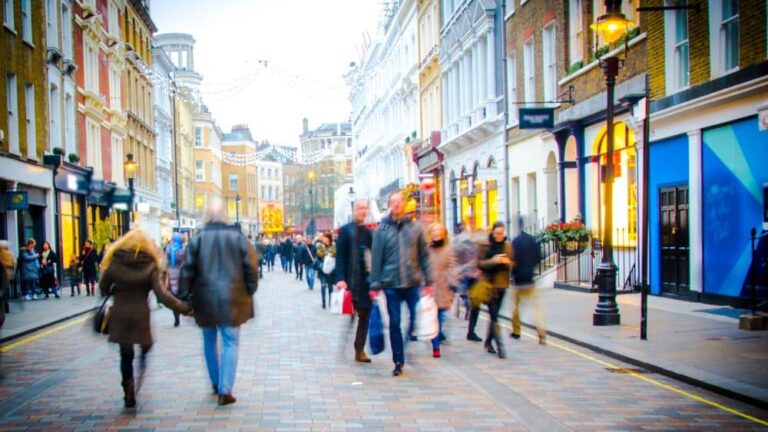
VAT and Customs Duties – Brexit Frequently Asked Questions
VAT and Customs Duties – Brexit Frequently Asked Questions
From 1 January 2021, the UK will no longer be considered an EU Member State following the end of the transition period – our FAQ’s are below.
1. We sell goods through our website and online marketplace to consumers in the EU, how will my supplies be treated from 1 January 2021?
At the moment sales to EU customers are covered by distance selling rules, these essentially allow you to charge UK VAT on those sales until you breach the threshold for that country (usually €35,000), once breached you will need to register in that EU country. From 1 January 2021, distance selling goes, sales will become zero rated exports and export declarations will be required. If the end customer is deemed to be the importer, then depending on the value of the item, they may be required to pay the parcel operator/postman local VAT and duty before they can receive the goods. If you are the importer then you will be required to register for VAT in that country, you can reclaim the import VAT and charge local VAT and must charge VAT on the sale.
You will need to balance the cost of potentially losing annoyed customers against the compliance costs of being the importer. Your logistics provider should inform you of any additional documentation requirements and what additional costs there will be.
You should also ensure any required export licences are held to allow exportation of the goods to the EU depending on the goods being sold.
From 1 July 2021, the EU will be introducing new rules for e-commerce supplies and schemes such as the Import One-Stop-Shop (IOSS) which will allow non-EU businesses to act as the importer of record and complete a single VAT return in one EU country and account for sales VAT to all EU customers in different EU countries without the requirement to register in multiple countries. No import VAT will be due, only the sales VAT.
2. I provide services in the EU either remotely or sometimes face to face when able to travel, how will Brexit affect my sales?
The place of supply of services (POSS) will essentially stay the same from 1 January 2021 in most cases. We would need further detail on what the service is and if it is supplied
to businesses or individuals.
There are general rules for business to business (B2B) services which require the recipient to account for the VAT under the reverse charge mechanism (no UK VAT charged). There are some exceptions to this e.g. land related services or admissions to events which mean you have to register in the country where the land or event is. When general services are supplied to individuals/consumers (B2C), as opposed to businesses, in the EU the supply is currently subject to UK VAT. In most cases this will change to outside the scope (no UK VAT) from 1 January. Again, where the exceptions apply you may need to register in a specific EU country.
The requirement to complete EC Sales Lists will be removed from 1 January 2021.
If you provide electronically supplied services (mostly of an automated nature) then your supplies may fall within the scope of MOSS (Mini One Stop Shop), if this is the case you will no longer be able to use this simplification, you will need to register for the non-union One Stop Shop (OSS) or have to register in each member state you make those types of sales. For more information on electronically supplied services, read our Factsheet on MOSS.
If you usually reclaim any EU VAT on business expenses via the EU VAT refund system, you will be able to claim expenditure incurred up to 31 December 2020 by 11pm on 31 March 2021. For expenses incurred post 1 January 2021 any refunds will need to be sought from each EU Member State directly (13th directive reclaims).
3. I purchase goods from the Netherlands and sell these on to my customer in Belgium. The goods are delivered directly to the customer and no UK VAT is charged on my supply. Will this continue to be the case following Brexit?
As the goods do not enter the UK, no UK VAT is due. At the moment you would have a registration obligation in either the Netherlands or Belgium. However, currently there is a simplification available termed ‘Triangulation’ (need 3 different EU Countries/VAT registrations) to avoid the need for you to register in those countries, there are certain conditions to meet and you would need to show this transaction on an EC Sales List.
From 1 January, Triangulation is no longer available to UK businesses as the UK VAT registration cannot complete the EU triangle. Therefore, you will be required to register for VAT in one of those countries depending on where you take ownership of the goods. If you obtain an EU VAT registration in a different EU member state (not Netherlands or Belgium) you may be able to use Triangulation again. If you do this you may also be required to appoint a local fiscal representative where you register and may need to complete an EC sales list to record the transaction.
4. From 1 January will I need to complete customs declarations for the importation of goods from the EU?
If you are the importer of record then ‘yes’, although provided the goods are not controlled for customs purposes, you may be able to defer declarations and the payment of Customs Duties for up to 6 months under one of the easement measures announced in the Border Operating Model (all easements cease from 1 July 2021).
When you or your agent completes a declaration, it is important you:
- Have a UK EORI number
- Have the correct commodity code for your goods and understand the classification rules
- Know the origin of the goods and understand the rules of origin (needed for Free Trade Agreements – FTAs)
- Know the customs value of your goods and understand how to calculate this
- Are aware of any customs procedures the goods may be entered into
- Provide clear instructions and review the declaration submitted for accuracy
- If, having reviewed the above, you are not in a position to complete or check declarations for accuracy, review our Factsheet on Customs Training.
5. We send shipments of goods from the EU to the UK partly for sale within the UK market with the remaining goods contained in the shipment passing through the UK for onward sale into other territories in the EU. Will this continue to be possible from 1 January 2021?
Yes, but the default position without a Free Trade Agreement with the EU is that there is a potential for double duty now; firstly when the goods are imported into the UK and then again when they are imported back into the EU.
Incoterms® will determine who is the importer of record and responsible for paying import VAT and duties throughout the chain. Different countries have different ways to pay/ account for import VAT and also different rules on who is able to recover that import VAT and ways to reclaim it. Care should be taken to detail who owns the goods at the points of importation. Ownership does not necessarily follow where the risk/responsibility passes under the Incoterm®.
To avoid double taxation, it may be possible to move the shipment under Transit arrangements, or by using a special procedure which can suspend the duty payable and remove it entirely when the goods leave the UK. The main procedures would be Customs Warehousing if just storing and doing minimal operations in the UK or Inwards Processing if the goods will undergo some further processing before they leave. These procedures take time to set up and there are other costs, both financial and time involved in running these procedures.
It is crucial that you discuss supply chains with customers and suppliers to ensure you have set out the Incoterms® and also have discussions with customs agents or freight forwarders to ensure that they can help complete declarations where applicable. Depending on the arrangements you may need to register for VAT in different EU countries.
6. If I am to import goods into the EU for onward sale and my customers are unwilling to be responsible for importing the goods, will I be required to set up a subsidiary company in the EU?
This will largely depend on the specifics of your business activities, supply chains and transport routes. If you are going to be the importer of record you will need an EU EORI number (you only need one number for the whole of the EU). In general you will be required to be VAT registered in the EU country where the goods first enter the EU unless you use Transit which may shift the requirement to where the destination country is. Some countries may not allow you to register for VAT if you only make supplies to business customers in that country so you will have to consider the impact of this on reclaiming import VAT.
It is not usually necessary to have an EU establishment/company, but it would simplify the VAT registration process and the ability to make declarations. It could also help address other labelling/regulatory issues in the EU. Please note that having an EU company will have other ongoing compliance costs and tax implications so advice should be sought out before committing to this.
Without an establishment it is very likely that you will be required to appoint a local representative/fiscal representative, which is a local entity that facilitates tax compliance. A fiscal representative usually becomes jointly and severally liable for any mistakes, so their charges may be high or they may require a guarantee to cover their risk.
You will need to consider your supply chains and understand which countries you may need to register in and seek assistance in completing the registration applications. It would be useful to point out that there are some specialist logistics providers that have come up with solutions which avoid the requirement to register in multiple countries when selling on DDP terms but they will do the declarations and you would have to use their freight, appoint them as a fiscal representative and use their deferment account so there will be other costs attached to this.
7. I am an EU business who sends goods to my customers in the UK. My customers are unwilling to be responsible for importing the goods, will I be required to set up a subsidiary company in the UK?
No. If you are the importer of record, you will be required to register for VAT in the UK and apply for a GB EORI number but you do not need to be established in the UK. A UK fiscal representative is also not required to do this. You will need to be the owner of the goods at the time of import to ensure you can recover any import VAT whether it is paid/deferred at the border or if you use the new Postponed Import VAT mechanism that will be available from 1 January 2021.
There may be some benefits to having an establishment in the UK for customs purposes, such as having access to customs procedures and duty deferment accounts. It would also help with other regulatory issues on labelling/UKCA marking etc. In all cases a detailed cost/benefit exercise should be carried out to ensure the additional costs and administrative responsibilities do not outweigh the benefits of setting up a subsidiary in the UK.
In some cases if you establish what duties may become payable without a Free Trade Agreement and discuss these with your customer you may be able to change their mind if you amend prices accordingly.
8. How do I pay for VAT and Customs Duties and can these be deferred?
Import VAT and Customs Duty is required to be paid to customs at the border to allow entry of goods into the UK. You can either pay at the border using the Flexible Accounting System, which is essentially a BACS transfer, or you can defer the payment using your own deferment account or the forwarders account which they will make a charge for. In all cases you need to make it clear to the customs agent on how you intend to settle the taxes.
The importer of record will quote their UK EORI number on the declaration in the consignee field. This will generate the required evidence for reclaiming import VAT, which can be in the form of a C79 import VAT certificate if the business pays/defers the VAT at import, or an import VAT statement which will be generated monthly if using the new postponed import VAT mechanism. This mechanism will come into force from 1 January 2021 and is optional, the agent will need to indicate it is being used. It will allow input VAT for all imports (not just EU purchases) to be self-declared on the VAT return (usually an in and out if the business can reclaim the VAT). Using this mechanism will improve cash flow and mean that deferment accounts limits can be reduced.
Customs Duties are not recoverable in any way, although depending on what happens to the goods, there may be certain customs procedures which suspend or remove entirely the duty payable as mentioned in Q5.
A UK established business may apply for a duty deferment account (DDA), which may require a financial guarantee (waivers are possible), which allows the goods to be cleared for entry into the UK without payment of import VAT and Customs Duty at the border, instead a single payment on the 15th day of the following month is collected by Direct Debit for all imports for the month. This provides a cash flow advantage for the business and allows faster clearance of goods through the border.
9. I deal with Northern Ireland and the Republic of Ireland with goods moving between the two and the rest of the UK, how will my supplies and movement of goods be affected from 1 January 2021 and what can I do to prepare?
The issue with the Northern Ireland (NI) protocol is a particularly complicated one and unfortunately definitive rules have not yet been set out. Guidance will likely become clearer should we complete a FTA with the EU and as we move through December. HMRC have published some guidance in October on the New protocol and some other guidance at the beginning of December 2020 to clarify some points which I would recommend reading.
Essentially NI will be within the UK and EU VAT system but also a part of the EU Customs Territory. The intention is that goods should move between NI and the rest of the UK as well as between NI and the Republic of Ireland without border checks, declarations or tariffs. However, this is proving difficult for all parties to accept and negotiations are ongoing about what declarations may be required and where goods are at risk of moving from the UK to the EU through NI, what mechanisms are in place to collect import duties and repay it should the goods remain in NI.
Given the impact this is going to have on NI businesses the government has set up the Trader Support Service (TSS) which will give the most up to date guidance for both NI and GB businesses, I would recommend going to the TSS website https://www.tradersupportservice.co.uk/tss for the latest information. The TSS is also going to help complete all customs and safety and security declarations for NI businesses moving goods from GB to NI. If you are going to be importer of record you will need an XI EORI number and may need to prefix your GB VAT number with XI if you are then selling goods to EU customers.
10. Are there any other oddities that are worth noting following the end of the transitional period?
Clearly there will be many changes for most businesses, especially those involved in the movement of goods into and out of the UK which many traders have not come across before. Some of the more unexpected effects are listed below:
VAT registrations in the EU may take longer than expected to be processed and whilst some Member States allow a registration to be backdated, others will only be effective from the date the application is processed. This can cause issues with goods imported prior to registration and potential sticking VAT costs. This may have an impact on your decision of where to register in the EU.
Non-established businesses may not be able to apply for UK deferment accounts. Although they may be entitled to use their customs agent or freight forwarders’ account this will come at a cost and will need to consider the impact on their sales price and profit margins.
Provision of intermediary supplies of certain financial transactions or insurance. For these specified supplies, intermediaries have been entitled to recover input VAT incurred on costs associated with the making of such supplies to customers based outside the EU even though such supplies made within the UK were exempt from VAT. However, no input VAT is recoverable on such supplies to customers based within the EU VAT territory. From 1 January 2021, VAT on costs will be recoverable on costs associated with these specified supplies when made to customers based anywhere outside the UK. Whilst the VAT on costs related to such supplies to customers based within the UK will remain irrecoverable, this will represent a significant and welcomed change to businesses in the financial and insurance intermediary sector.
The application of EU VAT law. Up until 31 December 2020 and for any formal appeals processed started prior to this date, case law decisions (even if issued after 31 December 2020) will continue to have direct effect on the application of UK VAT law. However, for appeals commencing from 1 January 2021 (even if relating to activities carried out prior to this date) they will not be bound by EU case law, although the EU decisions will remain persuasive. This means that although it is unlikely UK court decisions will largely change their approach, it is possible UK courts may decide on an alternative approach to those taken in EU courts, particularly as the UK begins drafting UK legislation where authorised to do so.









